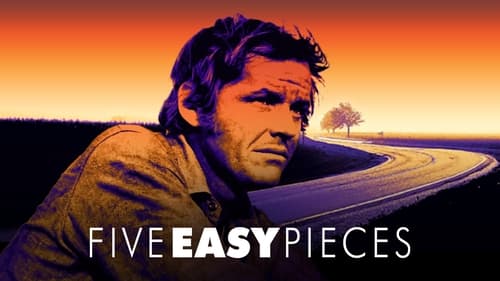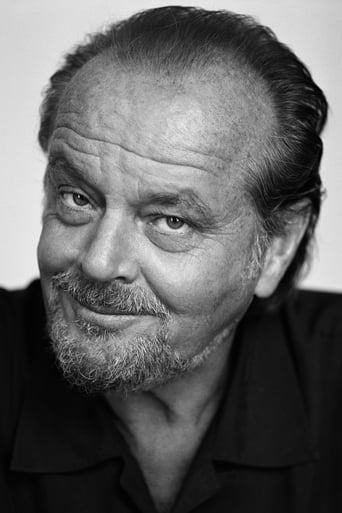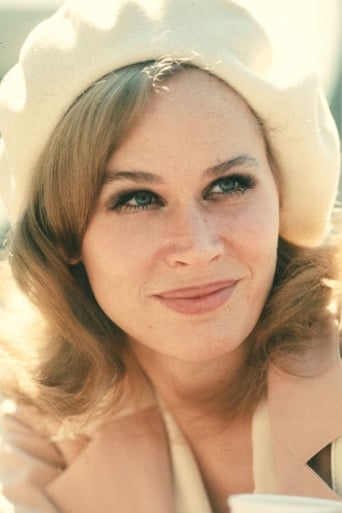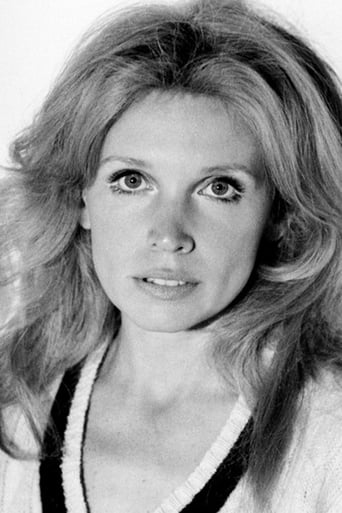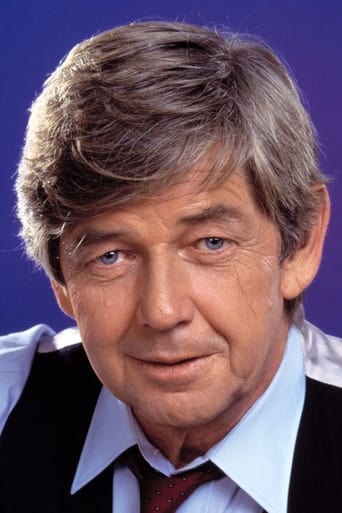Boobirt
Stylish but barely mediocre overall
Protraph
Lack of good storyline.
Nicole
I enjoyed watching this film and would recommend other to give it a try , (as I am) but this movie, although enjoyable to watch due to the better than average acting fails to add anything new to its storyline that is all too familiar to these types of movies.
Scotty Burke
It is interesting even when nothing much happens, which is for most of its 3-hour running time. Read full review
screenplayhouse
I'm an agnostic. Not a religious type. But I'm pretty sure this movie is a parable of some sort. The journey of a sinner being reborn. SPOILERS FROM THIS POINT FORWARDWe meet a sinner. Jack Nicholson. He has a friend who's part loon and part trouble. A bimbo girlfriend with a heart of gold. Two bimbos on the side in heat. He drinks, shows up to work drunk, mistreats strangers and friends like. No real friends, family, or direction in his life. Apart from drilling girls and drilling oil.Frustrated with his life he SUDDENLY is in Los Angeles meeting up with someone who's either his sister or Mom. I state it this way because I feel it was intentionally vague. This woman is a little looney herself but she has a big heart and can play the piano. This juxtaposition of oil rigs and perfectly tuned pianos comes absolutely out of nowhere, which means this a meandering mess of a movie, or it serves a bigger purpose and is actually perfectly crafted. I vote the latter. But stay with me.Jack is told to visit his Dad who's had a stroke. His Dad lives on an island, has a big white beard, and is basically cast to appear like Santa Claus. Or God.God living on an island is important. It puts his 'almighty' Father in a different place. Full of nature, green, and beauty. Instead of sand and oil rigs.It's a place Jack hates. A house (of God) that makes the sinner's skin crawl. One key reason is that his family and relations in the house all play music. The way their Dad did before his stroke. Music, here, is analogous to 'grace'.Jack came from this house and knows how to play the piano. But he gave it all up years ago. That is: being shown the way to make the world more pure and beautiful he chose instead to be a sinner and make it more ugly and... wait for it...... dirty. If you've seen this film you know the term 'dirty' holds a great deal of meaning. On his way to his Dad's house he picks up a stranded woman who won't shut her annoying mouth about dirt and filth. She hilariously promises not to even want to talk about such things but actually won't shut her angry mouth about it.I fell for this red herring at first. That her place in the story was comic relief. Think about the entire story again and you realize she's the 'wise man in the cave'. Speaking on behalf of the author. Hidden right in plain sight. Back in the 'house of God' Jack meets a better woman than his typical bimbo. She's all about (God's grace) 'music'. He plays her a tune, she's moved, he isn't. Because he is a dirty filthy sinner. (I'm not judging him. I'm saying the story is. Everyone in that house... as cartoonish as they appear... are not dirty or filthy. Except maybe that nurse dude.)So when the end of this story happens... and you're not on this page yet... the ending will make no sense to you. However, if you believe Jack has come to realize he is dirty and filthy and needs to be reborn to a better life ---- you get what I'm seeing in this film. And, again, I'm no religious type. But this is the only way I can coherently explain this incoherent looking piece.By the way: if you left BREAKING THE WAVES confused as hell, you missed a similar trick there. That story is NOT about a simple minded girl. It's about someone returning to Earth and would we recognize him if he was standing right in front of us as... a simple minded girl.Cheers. I hope this helped someone.
RashidsFilms
Well, let me put it this way. I love this movie for so many reasons, and I will try to type some of them:* Jack Nicholson is the leading. * Jack Nicholson's best performance. * disturbed main character. * it's involved with the 60's culture. * road-trip. * Karen Black's legs. * the dinner scene, which's one of my most beloved scenes of all time. * the five classical music. * the great ending.
Alan Weloth (RedNERVE)
Five Easy Pieces (1970) by Bob Rafelson is a fantastic movie. The camera work, lighting and acting is all enticing to watch unfold on screen. The scenes and lighting seemed to flow well and the acting was spot on, defiantly a fun film to watch.I thought the move fit its short run time of only about an hour and a half pretty well, most films last longer and have to cut major scenes to shorten their films but this one gets its story together and concludes in only an hour an a half, which is pretty cool.Five Easy Pieces (1970) is a great and entertaining classic film to watch!
George Wright
The character of Robert "Bobby" Dupea, performed brilliantly by Jack Nicholson, is the focus of this movie. Dupea is a character at a point in his life where he does not fit into either of two separate worlds, one is a world where he is free and the other where he is tied to his family's life of isolation, tradition and detachment. He was born with all the advantages others would envy, which he rejects for a life that his family no doubt feels is below his talents. When the show opens Bobby is living and working in an oil drilling region in Southern California. His partner is a café server named Rayette, performed by Karen Black. In that world, he hangs out with co-workers Elton and his family, where they booze, attend wild parties, go bowling and watch television. It's not a life that Bobby was born into but he can have fun with the women he seems to easily attract and not be tied down to the rigid life he knew growing up in a family of music artists. Bobby takes out his frustration on Rayette, who represents all the blue collar boredom he resents in his adopted life away from his own buttoned-up family. They have a rocky relationship in a small house where Rayette listens to country music, probably the last thing Bobby wants to listen to. When he meets up with his sister in Los Angeles, he finds out that his father has suffered two stokes. Partita, the sister, tells him to go home for a final visit.The movie then switches to an island in Puget Sound, near Seattle, where his family of professional musicians resides. His sister Partita, an accomplished pianist, lives there with the ailing father and brother Carl, played by Ralph Waite, a pleasant enough man but very stiff in the horse collar he has to wear as the result of an accident that has curtailed his career as a violinist. The whole family is stiff by Bobby's standards with the exception of his brother's fiancée Catherine, played by Susan Anspatch. Catherine is a free spirit like Bobby, who is not totally at ease in the family's isolated world in Puget Sound. Bobby charms her when he shows his talent on the piano, playing Chopin. His family's island home is presented as a dark, damp, dreary place in the movie, which fits the mood. People living here must take a ferry to the "mainland". When Rayette is here, she is like a fish out of water. A telling scene near the end with a group of family friends brings her discomfort into focus; in this encounter, Bobby shows his devotion to Raylene but the ending shows Bobby is not ready to find a direction to his life. This is a powerful movie about family, freedom, social class, and trying to find purpose in life.






